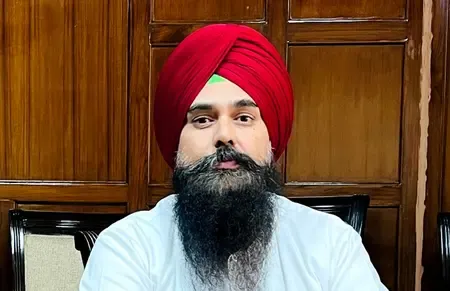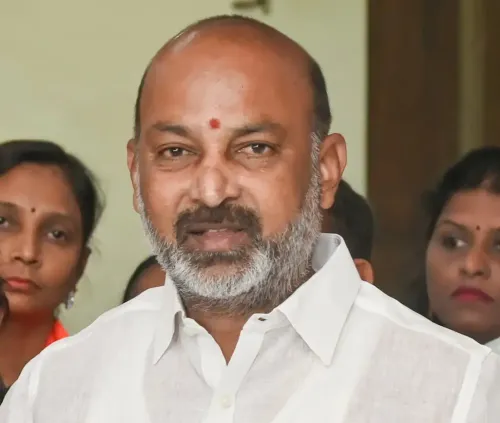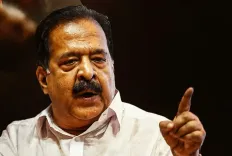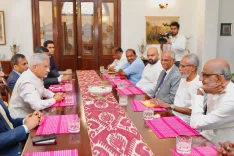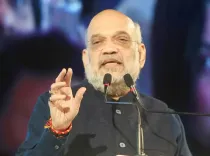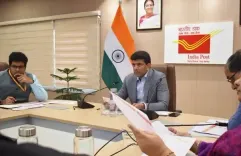Is the Indian Legal System in Dire Need of Reform?
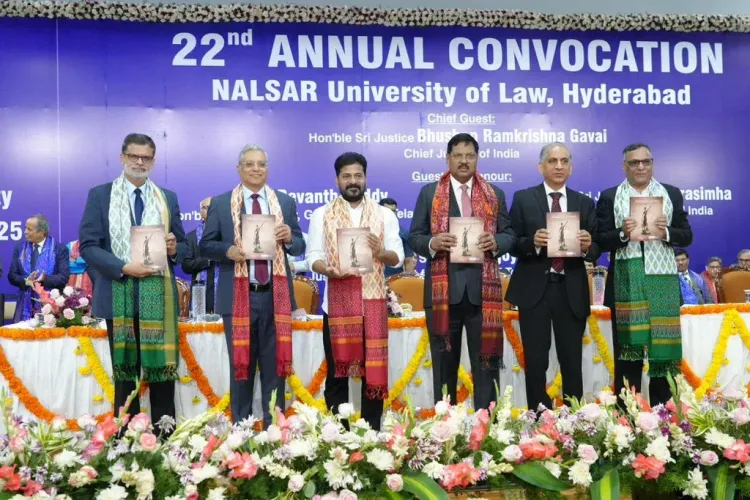
Synopsis
Key Takeaways
- Delays in trials are a significant issue
- Invest in innovative legal frameworks
- Seek mentorship based on integrity
- Importance of continuous learning
- Foster a supportive legal community
Hyderabad, July 12 (NationPress) The Chief Justice of India, B.R. Gavai, addressed the pressing issues within the Indian legal system, declaring it in critical need of reform. During his convocation speech at Nalsar University of Law in Hyderabad, he highlighted the significant challenges facing both the nation and its legal framework.
“Trials can experience delays spanning decades, leading to unfortunate situations where individuals are exonerated only after prolonged periods as undertrials,” he noted. He expressed optimism, despite recognizing the urgent need for improvement. “I believe in my fellow citizens' ability to meet these challenges,” the CJI remarked.
He emphasized the importance of investing in not just legal institutions, but also in innovative ideas, mentorship programs, research initiatives, policy labs, and ethical workplaces that encourage the brightest minds to remain in or return to India after their studies abroad.
The CJI encouraged students to pursue scholarships for international education, stressing the importance of not placing financial burdens on their families. “A foreign degree is not a measure of your worth,” he cautioned. “Make thoughtful decisions, avoiding peer pressure and the false urgency that can lead to debt and anxiety.”
He observed that while many students return from overseas with enhanced motivation and perspectives, they often find the local institutions are not welcoming, are under-resourced, or resistant to new ideas. “This needs to change to retain our best talents,” he stated, advocating for a nurturing academic environment that offers transparent opportunities and restores the dignity of Legal Research and Training in India.
He urged the graduating students to seek mentors based on integrity rather than power, and to aspire to become mentors themselves, fostering a supportive community within the legal profession. “We must create a culture that uplifts, not intimidates,” he said.
Justice Gavai shared his own journey, acknowledging the importance of others' support in his success. “The legal profession is noble and significant, yet it is fraught with challenges,” he warned, highlighting that there is no guaranteed path to success.
He advised that two key factors would help young lawyers navigate their careers: a solid grounding in legal fundamentals and a commitment to continual learning. “There are no shortcuts in mastering the law,” he emphasized.
Justice Gavai also cautioned about the isolating nature of the profession, noting, “The long hours and high expectations can be overwhelming, and many struggle in silence. I encourage you to seek out your community.”
The event was also attended by Chief Minister A. Revanth Reddy and Supreme Court Judge Justice P.S. Narasimha, with Acting Chief Justice of the Telangana High Court, Justice Sujoy Paul, officiating the ceremony.




